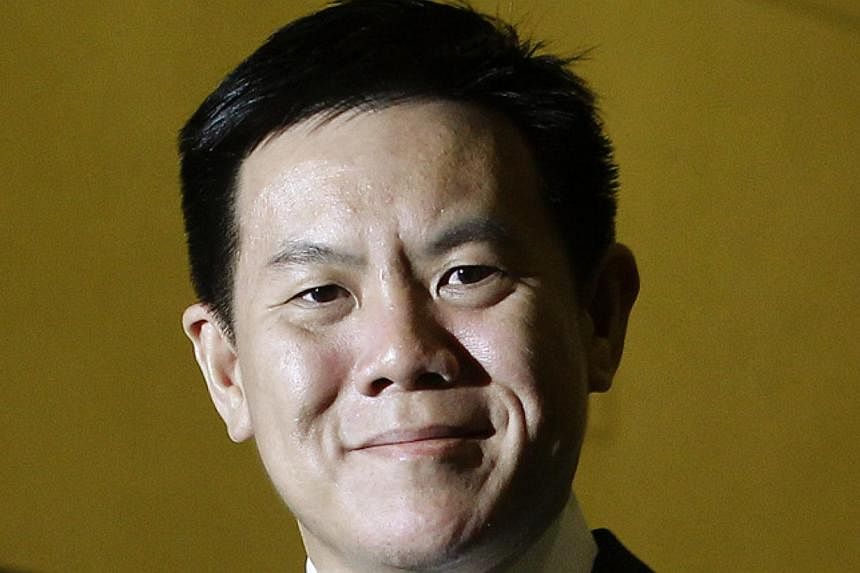Several strong local candidates could be in the frame to replace outgoing Singapore Exchange boss Magnus Bocker, but some industry watchers reckon the bourse should pick a foreign head honcho.
A new chief executive (CEO) from abroad could help the SGX boost its international standing, said corporate lawyer Robson Lee.
"If we want to attract foreign issuers, it would be good to have someone with regional or global experience in the equities market, flanked by strong local deputies... We can have derivatives and Reits (real estate investment trusts), but ultimately the stock market is driven by equities."
It is unlikely that the SGX would be able to attract the CEO of any of the prominent foreign stock exchanges, but it could look at their senior deputies with more than 10 years of experience running a strong international market, he added.
But it is not as if there is a shortage of qualified locals to step into Mr Bocker's shoes when he leaves in June.
Industry watchers have thrown three names into the ring: a former SGX director, Mr Loh Boon Chye, its former president, Mr Gan Seow Ann, and Mr Chew Sutat, now its executive vice-president.
Mr Loh, who was a non-independent director from 2004 to 2012, is "very capable and knows SGX very well", said Mr David Gerald, chief executive and president of the Securities Investors Association of Singapore (Sias), an investor lobby group.
Mr Loh is Bank of America Merrill Lynch's deputy president of Asia-Pacific and head of Asia-Pacific global markets, according to the bank's website.
Mr Gan was believed to have been in the running to take over from Mr Hsieh Fu Hua as SGX boss in 2009 but the post went to Mr Bocker.
He left the SGX in August 2013 to become vice-chairman of UBS Wealth Management's South-east Asia and Asia-Pacific hub.
Mr Chew, who has been the bourse's executive vice-president since June 2007, is also its head of sales and clients.
All three men are Singaporeans, which Mr Gerald said could benefit the exchange since they would be deeply familiar with local business culture and the expectations of stakeholders here.
While market watchers are split on whether the bourse should look overseas or at home for its new boss, they all agree that Mr Bocker is not the main cause of the local market's lacklustre trading activity, even though some remisiers have levelled that accusation at him.
They also said that the SGX's next CEO will continue to face largely the same challenges as Mr Bocker.
"To blame him for a volume drop is wrong. The truth is that Singapore faces lot of headwinds - there are bigger exchanges that have seen more listings and have bigger economic hinterlands," said CIMB analyst Kenneth Ng.
"The next CEO will have to resolve the issue of having to make Singapore's financial sector relevant in a world of global exchanges engaged in a winner-takes-all game."
Mr Geoffrey Kung, an investor and former IT consultant who helped set up stock exchanges in the 1980s and 1990s, said the SGX has structural problems that existed before Mr Bocker came into the picture. These include the limited number of brokerages, which reduces competition in that arena, and the bourse's IT back-office infrastructure, which needs upgrading.
Mr Bocker came under fire after two major trading disruptions in November and December, of which the second was triggered by a software update.
The November meltdown is being investigated by a committee of inquiry, which is expected to submit its findings to the SGX board and the Monetary Authority of Singapore by the end of next month.
Mr Hugh Young, the Asia managing director at Aberdeen Asset Management in Singapore, said Mr Bocker's departure announcement, coming just a few months after the disruptions, may seem to be "a bit on the back foot".
However, his departure likely had nothing to do with the brickbats hurled at him, Mr Young said. "I'm sure he's come across a lot worse... he's made of stronger stuff."
Veteran investor Mano Sabnani said he was surprised that Mr Bocker was leaving in June since "the work he's doing is not complete".
He added: "He's outlined a roadmap to make SGX an Asian hub, and we have not got there.
"I think he was moving SGX in the right direction, and he still has an obligation to deliver what he set out to do."




